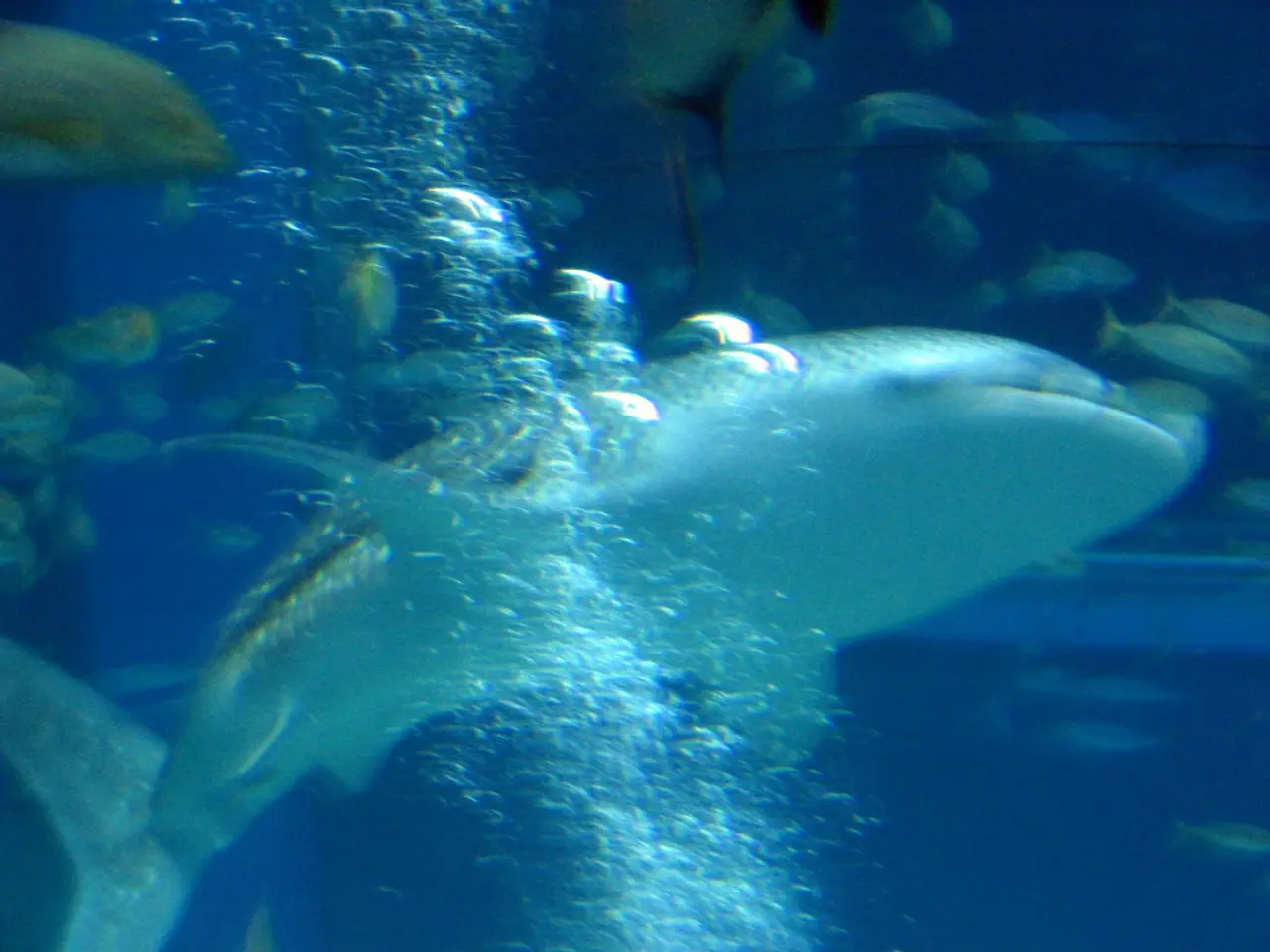Filmmaker Karliczek advocates for fish catching practices that preserve marine life and resources
In an effort to preserve marine ecosystems and ensure the long-term health of fish stocks, Christina Karliczek Skoglund is advocating for sustainable fisheries policies on an international level. Unfortunately, overfishing has been a significant issue since the 1970s, despite scientists' repeated warnings against it.
Internationally, sustainable fisheries policies focus on science-based management, ecosystem protection, and combating illegal fishing. Key steps include adherence to sustainable catch limits, strengthening Regional Fisheries Management Organizations (RFMOs), improving transparency and traceability, and using certification schemes such as the Marine Stewardship Council (MSC) to endorse sustainable fisheries practices.
The MSC sets standards ensuring fisheries avoid overfishing and foster stock recovery, certifying fisheries that meet environmental and management criteria globally, including for tuna stocks. The European Union’s Common Fisheries Policy (CFP) integrates sustainability by managing at maximum sustainable yield levels based on scientific advice, enforcing landing obligations to reduce bycatch, and employing multiannual management plans and control systems to prevent illegal, unreported, and unregulated (IUU) fishing. It also supports sustainable aquaculture and regulates fleet capacity for balanced fishing opportunities.
The Food and Agriculture Organization (FAO) highlights that while over 35% of global fish stocks were overfished as of 2021, improved science-based management has enabled recovery in key stocks such as tuna. These improvements serve as a model for global fisheries management. The EU IUU Fishing Coalition emphasizes the importance of transparency in vessel ownership, strengthening RFMOs’ roles, ratifying international agreements like the WTO Fisheries Subsidies Agreement, reforming Sustainable Fisheries Partnership Agreements, and reinforcing monitoring systems to combat illegal fishing.
On the consumer side, mandatory and harmonized seafood labeling and traceability in markets, especially within the EU, are being advanced to allow consumers to make informed, sustainable choices, reduce fraud, and support fair competition. Consumers are urged to enforce import controls excluding seafood linked to IUU fishing.
To support sustainability, consumers can choose seafood with credible certifications such as MSC, prefer products with transparent labeling indicating sustainable sourcing, support seafood suppliers and retailers committed to traceability and fighting illegal fishing, reduce consumption of overfished species and favor aquaculture products with sustainable credentials, advocate for policies enhancing fisheries transparency and environmental standards, and pay attention to threatened shark species when shopping.
Christina Karliczek Skoglund also advises against consuming shark products, as the EU, through Spain and Portugal, is the third-largest exporter of shark fins and shark meat worldwide. Moreover, she recommends avoiding cosmetics containing squalene derived from sharks, as it is often not indicated whether squalene in moisturizing creams comes from sharks or is plant-based. She suggests a shift towards eating more plant-based food and urges consumers to pay attention to threatened shark species when shopping.
As a nature filmmaker and underwater cinematographer, Christina Karliczek Skoglund is deeply committed to preserving marine ecosystems. She is urging consumers to push for evaluation systems or seals to be controlled more strictly and to express concern about the EU continuing to subsidize and promote non-sustainable fishing. These combined international policies and consumer actions aim to ensure the long-term health of marine ecosystems and fish stocks.
- Christina Karliczek Skoglund, in her pursuit of sustainable fisheries, advocates for policies in environmental-science areas like combating illegal fishing and preserving marine ecosystems, aligning with international standards set by the Marine Stewardship Council (MSC) and the European Union’s Common Fisheries Policy (CFP).
- Addressing climate-change implications, she advises consumers to reduce theirseafood consumption of overfished species, preferring aquaculture products with sustainable credentials and choosing cosmetics that avoid squalene derived from sharks, as these actions contribute to the health-and-wellness of marine life and ecological balance.
- Joining efforts with international organizations, such as the FAO and various RFMOs, Christina Karliczek Skoglund aims to strengthen science-based management strategies to curb overfishing, improve transparency, and advance practices that promote long-term sustainability in fisheries and the fishing industry.




